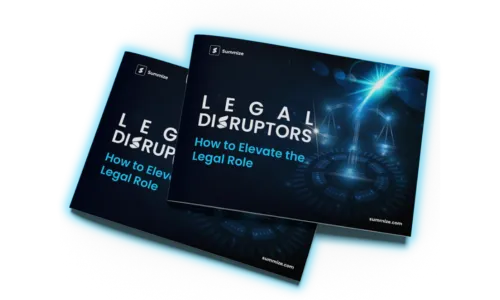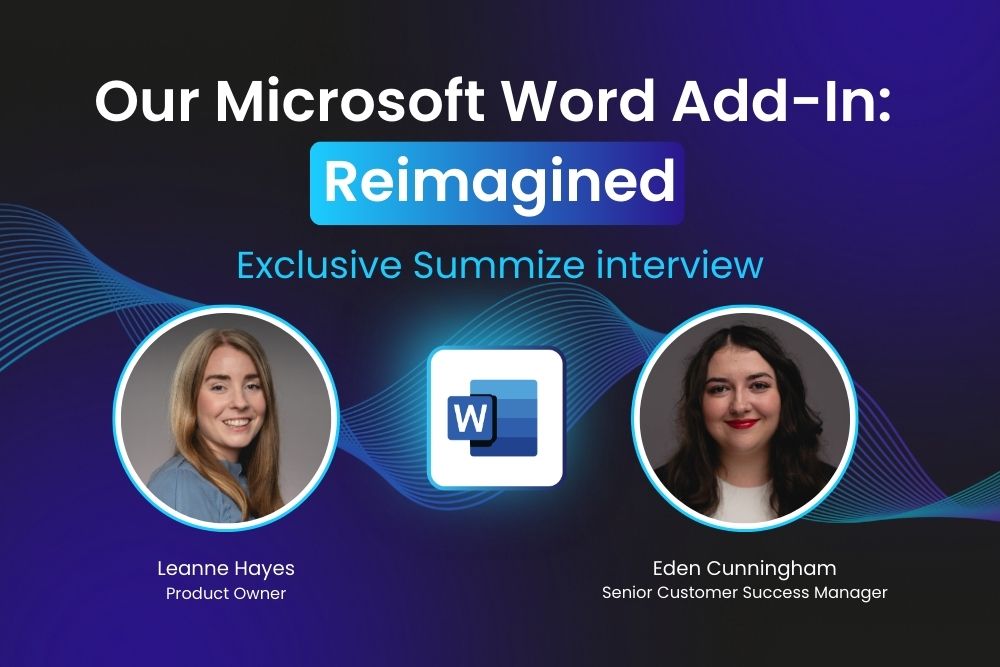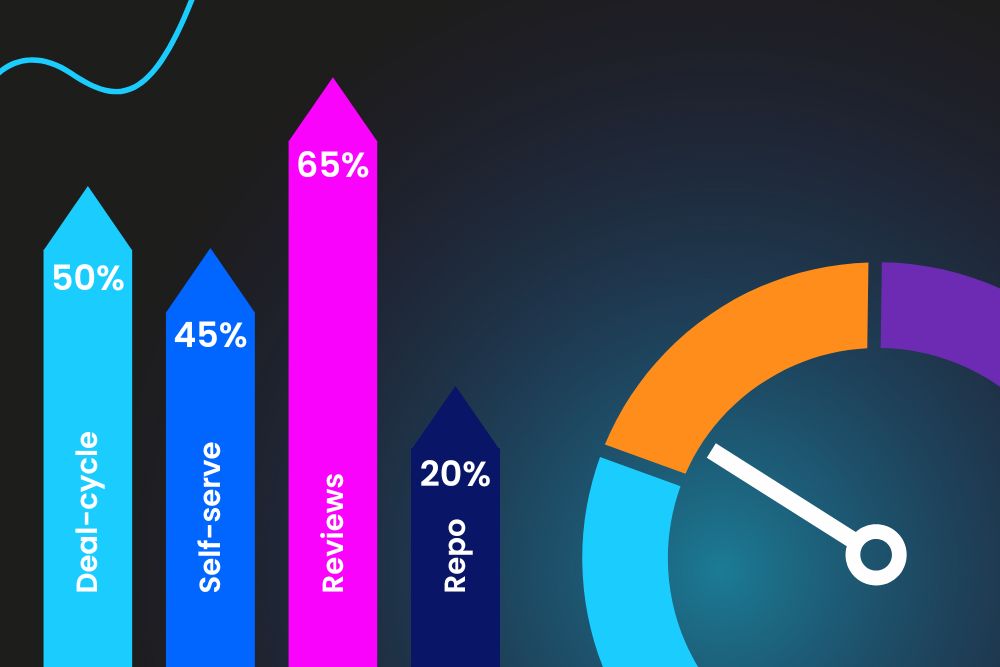The Lawyer's Escape Pod: Eimear McCann
Eimear McCann from Summize caught up with Megan Smiley from The Lawyer's Escape Pod to talk about routes into legal and innovation in the legal tech field.
May 28, 2021
December 19, 2025
In this episode of The Lawyer’s Escape Pod, host Megan Smiley welcomes Eimear McCann, Summize’s Head of Strategy. Megan, a former lawyer herself, created the podcast for legal professionals who feel stuck or unfulfilled and are searching for a more intentional and satisfying career path. Eimear brings a refreshingly honest and thoughtful perspective, shaped by a career that has spanned traditional legal practice, human rights work, and ultimately legal technology.
Eimear’s journey is anything but linear. After initially vowing never to practice law, she found her way back through immigration and human rights work, an area she loved deeply but eventually found emotionally draining. Her story sets the stage for a rich discussion about change, growth, and redefining success within (and beyond) the legal profession.
Innovation in law doesn’t always mean “hard tech”
Within the podcast, Eimear and Megan explore how innovation in the legal field can be as much about rethinking processes and culture as it is about sophisticated technology. One standout example is a legal staffing company that replaced traditional CVs with short videos, allowing candidates to present themselves as real people rather than just credentials on a page. This human-centered approach challenged convention, and has ultimately worked.
Careers come in seasons
A central theme of the conversation is the idea that no career choice has to last forever. Eimear speaks candidly about loving her work in immigration and human rights law, while also recognizing when it was time to move on. The episode offers reassurance that evolving interests, changing priorities, and even emotional fatigue are normal and that it’s okay to choose differently in a new season of life.
Finding freedom through exploration
Rather than following a single, predetermined plan, Eimear describes a period of exploration where she tried freelance work, learned basic coding, explored consulting, and overall paid attention to what genuinely energized her. This curiosity-led approach ultimately led her to legal tech, a space that sits at the intersection of law, creativity, and innovation.
Legal tech as a new home for lawyers
The podcast also demystifies legal technology as a career option. Eimear explains that lawyers don’t need to be coders to thrive in the space. Roles in strategy, product, marketing, and user experience all benefit from legal insight, especially when paired with curiosity and a willingness to learn. Legal tech, she notes, often offers more collaborative cultures and opportunities to rethink how legal work gets done.
If you’ve ever questioned whether the path you’re on is still the right one, or wondered what else might be possible with a legal background, this episode offers both comfort and inspiration. To hear Eimear’s story in her own words and dive deeper into these ideas, be sure to listen to the full episode of The Lawyer’s Escape Pod at the start of the article, and to explore more useful insights for an in-house legal professional click below.
Discover even more!
Explore more about contracting and CLM in our ultimate contract guides








